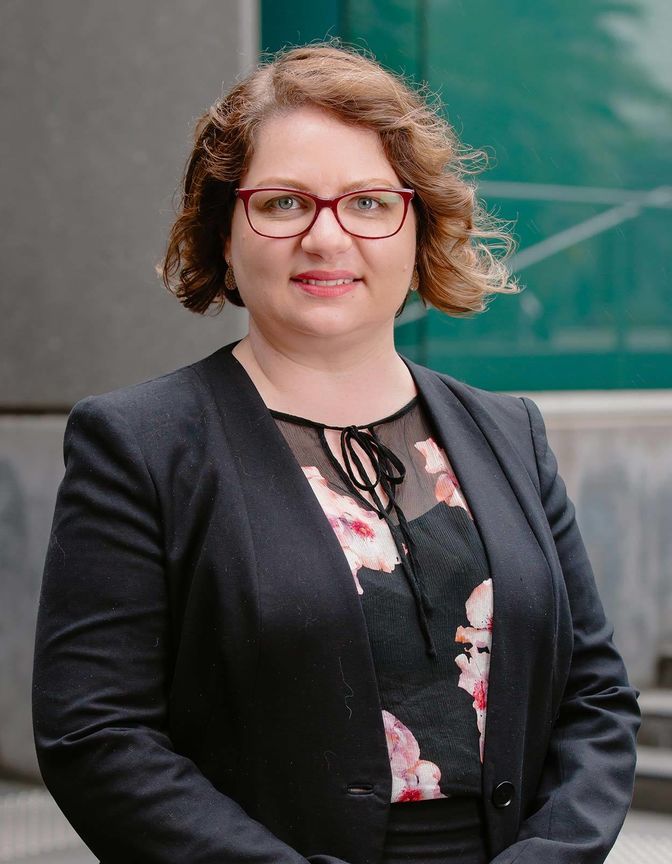Native Title, Resources and Renewable Energy | Team Newsletter
Welcome to the first edition of the Native Title, Resources, and Renewable Energy Team Newsletter for 2024. We are thrilled to launch this platform to keep you informed about the latest developments, insights, and trends in the intersecting areas of native title, natural resources, and renewable energy.
In an ever-evolving legal landscape, staying abreast of changes and advancements is paramount. With this newsletter, we aim to provide you with valuable updates on pertinent legal matters, case studies, regulatory changes and industry news. Our experienced team is dedicated to delivering timely and comprehensive analysis to support your strategic decision-making processes.
As we navigate the complexities of native title law, resource management and the transition to renewable energy sources, collaboration and knowledge-sharing become increasingly essential. We invite you to engage with us, share your perspectives and leverage our expertise to address the challenges and opportunities ahead.
Regards
Norman Waterhouse
Native Title, Resources, and Renewable Energy Team
1. The potential for water in native title agreements
Currently, desalination accounts for about 2% of all water used in Australia, but this is expected to rise towards 20% over the next 30 years. This is being driven by the potential growth in hydrogen and other renewable energies and expanding water operations to combat Australia’s arid climate.
In some geographic areas, native title agreements can cover desalination projects. Developments in desalination technology are moving quickly, providing the opportunity for significant economic growth and benefits for native title groups.
Norman Waterhouse has been at the forefront of this development. We have recently finalised the first desalination Indigenous Land Use Agreement (ILUA) in South Australia, including a desalination rate for water which can be used as a precedent for future agreements across Australia.
2. New scholarship for Registered Native Title Bodies Corporates (RNTBCs)
Land access and native title agreements are commonplace for RNTBCs (the corporate bodies run by native title holders to manage their native title. They often involve negotiations with sophisticated companies who have experience valuing and brokering commercial arrangements. We commonly see RNTBCs undervalue native title land because they simply do not have the resources that companies have at their disposal. We also often encounter Government policies which have a limited awareness of the economics of native title negotiations.
At Norman Waterhouse, we want to ensure there is a level playing field when it comes to land access agreements so RNTBCs can maximise the benefits they receive from their land. To address this, we are proud to announce the launch of the Nick Llewellyn-Jones Indigenous Commerce Scholarship valued at $20,000. The scholarship will assist indigenous students to study the Bachelor of Business, Business Economics or Commerce at Flinders University.
This scholarship is the first step in our journey to build knowledge and skills amongst native title holders and their managing bodies. In the future, we intend on supporting the establishment of a Certificate of RNTBC Management that will focus on both cultural protection and the economics of engaging with an RNTBC.
3. Supporting South Australia’s renewable energy transformation
South Australia has ambitious plans to become a net renewable energy generator. Norman Waterhouse is supporting this transition by providing our experience and expertise to over half of all large renewable energy projects in the State.
For the last two years, we have led the way in our work with the Barngarla Determination Aboriginal Corporate RNTBC (BDAC). Last year, BDAC won the Premier’s Energy Award for their work on the Eyre Peninsula Link Monitoring Program, involving a comprehensive agreement for electricity infrastructure expansion that we negotiated and drafted.
In 2022, Norman Waterhouse won the Premier’s Energy Award Commendation jointly with BDAC, EPS Energy and Amp Energy for the first ILUA and agreement for lease in South Australia that handed back native title land for a commercial purpose. This innovative set of agreements enabled 700 hectares to be returned to the Barngarla People, so they are now the landlord of a major solar farm in their native title area. The agreements also enable BDAC to take a shareholding in the project, to become part-owners in one of the largest renewable energy plants in South Australia and share in the economic benefits of the energy transition.
These projects show what is possible when you think innovatively. We worked tirelessly with our clients to push the limits of native title and enabled BDAC to take on a large economic stake in these projects.
As the energy transition continues to emerge, Norman Waterhouse is proud to support native title holders, government and energy producers in successfully navigating this transformation. We are currently working on the legal agreements for $60 billion in renewable investment in South Australia.
4. Working with Councils and the First Nations of the South East (FNSE)
Local government is at the forefront of community work; they play an important role when it comes to native title.
It has taken many years, but the First Nations of the South East native title claim is finally heading to a Federal Court Determination. To make sure the land tenure is properly recorded, Norman Waterhouse is working closely with the relevant local government councils to ensure they undertake their responsibilities in recognising First Nations people while managing Crown land in their care and control.
5. Leading the way in Australian ILUAs
Over the last five years, Norman Waterhouse has completed around 70% of all ILUAs in South Australia and is currently in the process of negotiating almost a third of all commercial ILUAs in Australia.
Given the complexity of native title, no ILUA is the same. Each community, commercial project, land geography and arrangement involve different cultural, commercial, and social needs. Some ILUAs involve industries that are relatively common in native title agreements like mining, ports and local government. We are also increasingly seeing new aspects being negotiated in agreements such as wind and solar farms and hydrogen projects.
At Norman Waterhouse, we leverage our commercial experience in negotiating agreements across Australia to ensure that native title holders receive the benefits they deserve for land access and to make sure that companies are confident in their project security and achieve swift and lasting outcomes. Our Native Title, Resources and Renewable Energy Team have been recognised by Doyle’s Guide for both our work with traditional owners and corporate proponents. We are proud to be recognised in the national listing for 2024 and recommended as a Leading Native Title Law Firm in Australia.





